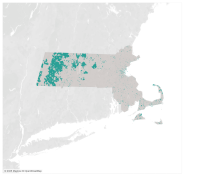
It was just last year when the City Council in Westminster, Maryland voted to begin a partnership with private ISP company Ting Internet. Ting now delivers high quality Internet access via the citywide, publicly owned fiber network.
A new collaborative initiative, facilitated in part by the still expanding Westminster Fiber Network, is bringing new cultural opportunities and economic benefits to city residents. “Tech Incubation” aims to give local students hands-on experience exploring their interests in technology.
Incubating Talent, Innovation
For the first project within the Tech Incubation initiative, 15 students from local high schools spent several weeks learning to create and operate an actual temporary wireless network. The city then used the network for its annual Celtic Canter and Downtown Irish Celebration in March, providing attendees of the celebration with unprecedented levels of bandwidth and broadband speeds.
The Tech Incubation Initiative is the product of a collaboration between the City of Westminster, the Mid-Atlantic Gigabit Innovation Collaboratory (MAGIC), Ting Internet, and the Westminster-based company Freedom Broadband. Freedom Broadband supervised the project and provided the wireless equipment necessary to build the network; Ting and the City of Westminster provided the necessary Gigabit backhaul over the Westminster Fiber Network.
More Opportunities Ahead
This project is the first in a series of planned, ongoing projects to teach students technology skills and encourage a culture of innovation. MAGIC is developing the Tech Incubation program in response to requests by students in Westminster for more opportunities to learn about technology.
Westminster’s City Council President Dr. Robert Wack described the value of the Tech Incubation initiative to community:
“For the students, it’s mostly fun, but I’m sure some of them have specific goals for education and certainly the more tech savvy young people we have in this community, the better that is for our local economy.”







